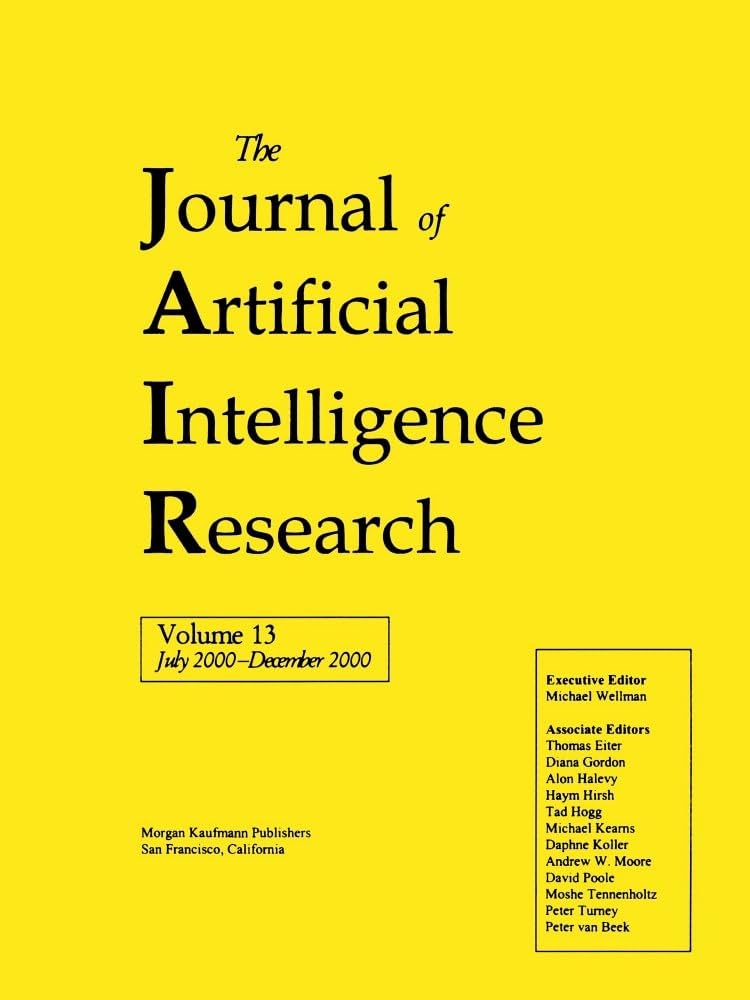时间概率计划的机会约束静态调度
IF 4.5
3区 计算机科学
Q2 COMPUTER SCIENCE, ARTIFICIAL INTELLIGENCE
引用次数: 1
摘要
不确定条件下的时间管理对于大型项目来说是必不可少的。从空间探索到工业生产,都需要安排和执行活动。给定复杂的时序规范。为了生成对活动持续时间的不确定性具有鲁棒性的计划,先前的工作集中在使用区间有界不确定性表示的问题框架上。然而,这种方法无法利用已知的持续时间内的概率分布。在本文中,我们集中讨论具有不确定持续时间的时间问题的一个概率公式,称为概率简单时间问题。由于分布通常具有无界的结果范围,我们考虑机会约束的解决方案,并保证满足时间约束的概率。通过考虑不确定持续时间的分布,我们能够将风险作为一种资源,对结果的相对可能性进行推理,并得出更高的效用解决方案。我们首先通过将问题编码为凸程序来演示我们的方法。然后,我们开发了一个更有效的混合算法,其父解算器生成风险分配,其子解算器生成特定风险分配的调度。子节点通过利用现有的间隔有界调度算法来提高效率,而父节点通过提取风险分配上的冲突来提高效率。我们进行了数值实验,通过比较风险分配生成的调度与有界不确定性推理生成的调度的效用,来显示推理优于概率不确定性的优势。我们还通过经验表明,通过合并冲突导向的风险分配,解决时间大大减少。本文章由计算机程序翻译,如有差异,请以英文原文为准。
Chance-constrained Static Schedules for Temporally Probabilistic Plans
Time management under uncertainty is essential to large scale projects. From space exploration to industrial production, there is a need to schedule and perform activities. given complex specifications on timing. In order to generate schedules that are robust to uncertainty in the duration of activities, prior work has focused on a problem framing that uses an interval-bounded uncertainty representation. However, such approaches are unable to take advantage of known probability distributions over duration.
In this paper we concentrate on a probabilistic formulation of temporal problems with uncertain duration, called the probabilistic simple temporal problem. As distributions often have an unbounded range of outcomes, we consider chance-constrained solutions, with guarantees on the probability of meeting temporal constraints. By considering distributions over uncertain duration, we are able to use risk as a resource, reason over the relative likelihood of outcomes, and derive higher utility solutions. We first demonstrate our approach by encoding the problem as a convex program. We then develop a more efficient hybrid algorithm whose parent solver generates risk allocations and whose child solver generates schedules for a particular risk allocation. The child is made efficient by leveraging existing interval-bounded scheduling algorithms, while the parent is made efficient by extracting conflicts over risk allocations. We perform numerical experiments to show the advantages of reasoning over probabilistic uncertainty, by comparing the utility of schedules generated with risk allocation against those generated from reasoning over bounded uncertainty. We also empirically show that solution time is greatly reduced by incorporating conflict-directed risk allocation.
求助全文
通过发布文献求助,成功后即可免费获取论文全文。
去求助
来源期刊

Journal of Artificial Intelligence Research
工程技术-计算机:人工智能
CiteScore
9.60
自引率
4.00%
发文量
98
审稿时长
4 months
期刊介绍:
JAIR(ISSN 1076 - 9757) covers all areas of artificial intelligence (AI), publishing refereed research articles, survey articles, and technical notes. Established in 1993 as one of the first electronic scientific journals, JAIR is indexed by INSPEC, Science Citation Index, and MathSciNet. JAIR reviews papers within approximately three months of submission and publishes accepted articles on the internet immediately upon receiving the final versions. JAIR articles are published for free distribution on the internet by the AI Access Foundation, and for purchase in bound volumes by AAAI Press.
 求助内容:
求助内容: 应助结果提醒方式:
应助结果提醒方式:


